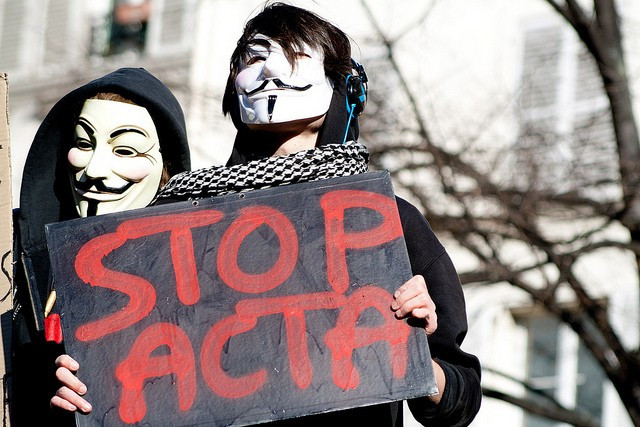ACTA Rejected by European Parliament in Landslide Vote
The highly controversial Anti-Counterfeiting Trade Agreement (ACTA) has been rejected for good by the European Parliament, after a landslide vote against the treaty of 478 to 39, with 146 abstentions.

The move means that ACTA cannot come into force anywhere within the European Union, although it could still be voted on in the US, but only if six of the eight non-EU countries that have signed the treaty go on to ratify it.
These non-EU countries who have signed ACTA include Australia, Canada, Japan, South Korea, Morocco, New Zealand, Singapore and the US, although none have yet ratified it.
To be passed in the EU, ACTA had to be ratified by all member states, but not a single state did so and the European Parliament has now joined Poland and others in flatly rejecting such ratification.
Megaupload website owner Kim Dotcom tweeted about the news: "SOPA is dead. PIPA is dead. ACTA is dead. MEGA will return. Bigger. Better. Faster. Free of charge & shielded from attacks. Evolution!"
ACTA's survival now depends on whether or not the US will ratify it, and while President Obama has previously shown his support for the treaty, he now finds himself in an election year when the widespread protest again SOPA and ACTA is still fresh in voters' memories.
If passed, ACTA posed to threaten freedom of speech, by enforcing internet service providers to monitor what all of their users are doing online, for fear of being responsible if just one user uploads or shares copyrighted material.
TorrentFreak said: "This is a day of celebration. This is the day when citizens of Europe and the world won over unelected bureaucrats who were being wooed and lobbied by the richest corporations of the planet."
On 18 January, hundreds of websites - including Wikipedia and Reddit - went dark and prevented users from easily accessing them to show what the internet could be like if ACTA, and similar proposal SOPA, came into force.
As ACTA was framed as a trade agreement rather than an actual treaty, negotiations about it could be held in secret and away from civil rights groups. Thanks to leaked drafts of the agreement - some published by WikiLeaks - the public got to learn how far the agreement was planning to go to stamp out online piracy.
Accused of censoring the internet, ACTA would have had the power to imprison those found guilty of relatively small copyright infringements, such as recording in the cinema with a mobile phone, and allow border control to search iPods for pirated music.
While seeking to charge those committing copyright infringement on an industrial scale is welcomed, ACTA would have given authorities the powers to imprison bloggers who uploaded copyrighted music on their blogs, no matter how little traffic the website received.
© Copyright IBTimes 2025. All rights reserved.






















